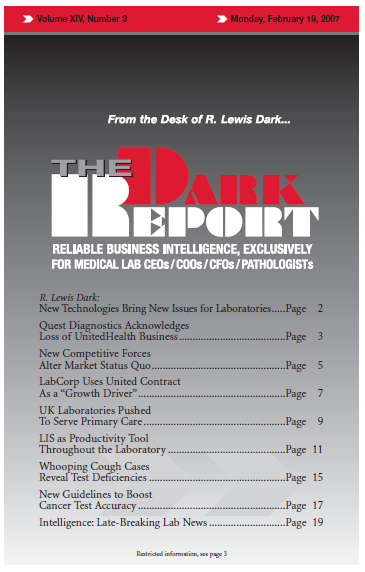CEO SUMMARY: January was not kind to Quest Diagnostics, as the company disclosed that it was likely to lose all its UnitedHealth business by year end. It also found itself excluded from the Horizon Blue Cross Blue Shield of New Jersey program. By February 1, however, Quest Diagnostics had acquired HemoCue, a point-of-care testing company …
New Competitive Forces Alter Market Status Quo Read More »
To access this post, you must purchase The Dark Report.


